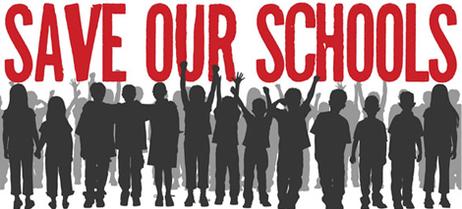Many educators and parents are fed up with the current state of public education and have decided to take matters into their own hands. To make their voices heard in state legislatures and Washington, they have invited all disgruntled with the school system to meet together this summer in Washington, D.C. The Save Our Schools March has been gaining steam since its inception a year ago, and now many local marches are planned across the country. We'll look at the purpose of the Save Our Schools March and why so many nationwide have become frustrated enough with public education to take a public stand.
What is the Save Our Schools March?
This movement has cumulated into the Save Our Schools March and National Call to Action, which began approximately one year ago. Many parents, students, educators, and community members have become increasingly frustrated with the No Child Left Behind Act, which went into effect ten years ago, and the more recent Race to the Top initiative by the Obama Administration. According to the organization's website, this group has seen the educational system transform into one that is primarily governed by test scores rather than real instruction.
Many in this movement have taken their concerns to state politicians, and some have even gone to Capitol Hill with their issues. However, they do not feel that anyone in a position to make the necessary changes has listened to their pleas. That is when the Save Our Schools March and National Call to Action was formed. Many in the education realm decided that a unified voice of many stood a greater chance of being heard than a single, distant voice here and there.
Guiding Principles for the Movement
When this organization was formed, they created a series of guiding principles to help them retain their focus and purpose. These guidelines include:
Equitable Funding
Save Our Schools is working to ensure every school in the country has the necessary funding and resources to provide students with the highest possible quality of education and funding for community support services and neighborhood libraries.
End to Standardized Testing for Evaluation Purposes
Save Our Schools believes that high-stakes testing is detrimental to the overall quality of education in this country. It wants to eliminate pay-per-testing performance and funding based on overall test performance in each individual school.
Local Curriculum Development
Within this guideline, Save Our Schools would like smaller class sizes, opportunities for multicultural learning, and a well-rounded curriculum encompassing a broad range of disciplines. The organization also wants teachers nationwide to have access to a broader range of resources and technologies.
A Shift in Leadership
This organization advocates for school leadership to shift to teacher, family, and community leadership, which is supported by state and federal government officials.
Why a March?
According to a recent report in the Washington Post, Save Our Schools is planning a march in Washington D.C. this summer to ensure their voices are heard regarding education reform. The group wants to illustrate alternatives to legislation like No Child Left Behind and Race to the Top, with structured programs that put students and learning first. The organization is focused on showing evidence that test-based teaching and learning harm the students more than reasonable.
The specific goals of the March on Washington include:
- Opening up an authentic dialogue that involves a broader spectrum of educators and community members to determine what works in public education and what doesn't
- Sending the message to Congress that No Child Left Behind is a broken education system that requires complete reformation
- Heightening awareness of the dissatisfaction with the current state of public education and showing that concerns go far beyond a handful of educators who don't like the status quo
- Raising concerns over wasteful federal spending on public education that goes toward promoting reforms that do not work the way they were intended
Going Local
As the wheels for the Washington D.C. march have been put into motion over the last year, some states have also become involved with the movement. For concerned individuals unable to travel to Washington in July, there are many local marches around the country to meet similar goals on a smaller scale. The Austin Chronicle reports that the Save Texas Schools coalition marched on the state capital in March, even as the Texas legislature was inside making essential decisions on allocating public school monies.
Instead of inviting state legislatures to speak at the event, the group has invited them as honored guests to hear what parents, educators, and community members have to say. Since its inception in February of this year, Save Texas Schools has signed on nearly 100 volunteer organizers, and the movement is slowly but surely gaining momentum as more Texans voice concerns about the condition of their schools.
A Save Our Schools website map shows that similar demonstrations occur nationwide in Colorado, New York, and California. The Washington D.C. march is scheduled for July 30, but conferences will also be held in the days before and after the event. A rally at Ellipse Park will precede the march, and then demonstrators will make their way to the steps of the Department of Education to show their concern and their demands for real education reform.
Questions? contact us on Facebook. @publicschoolreview















